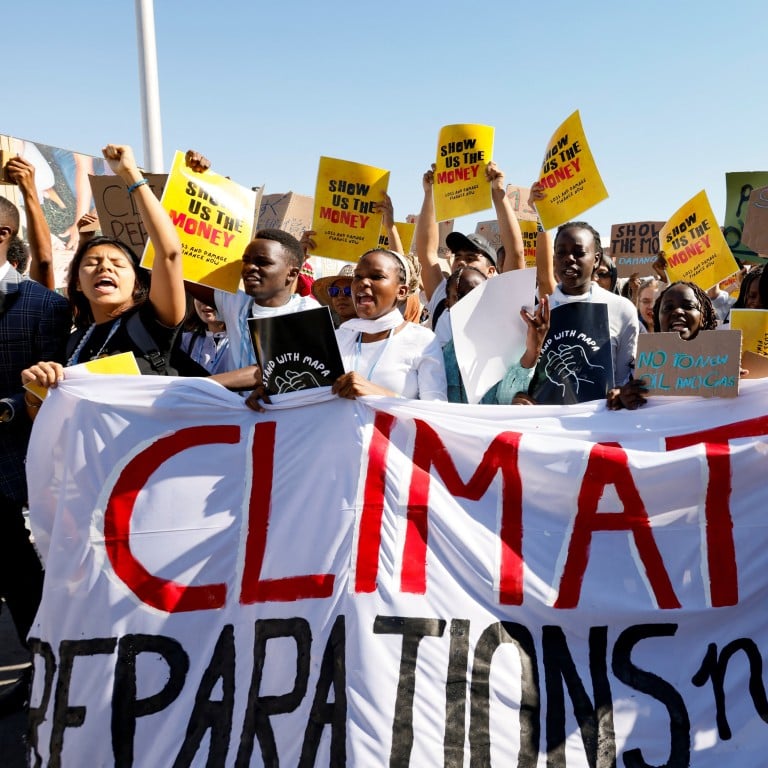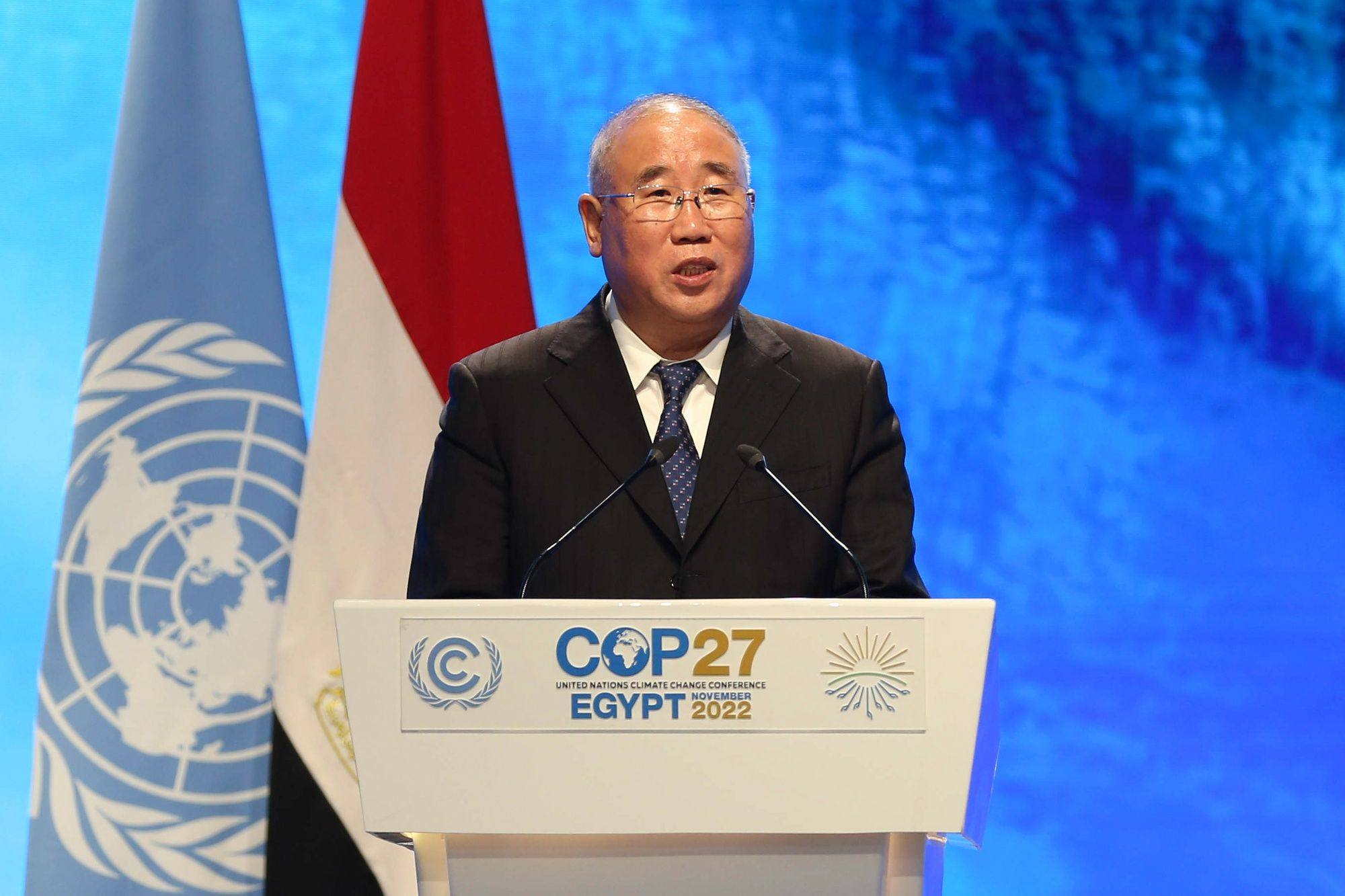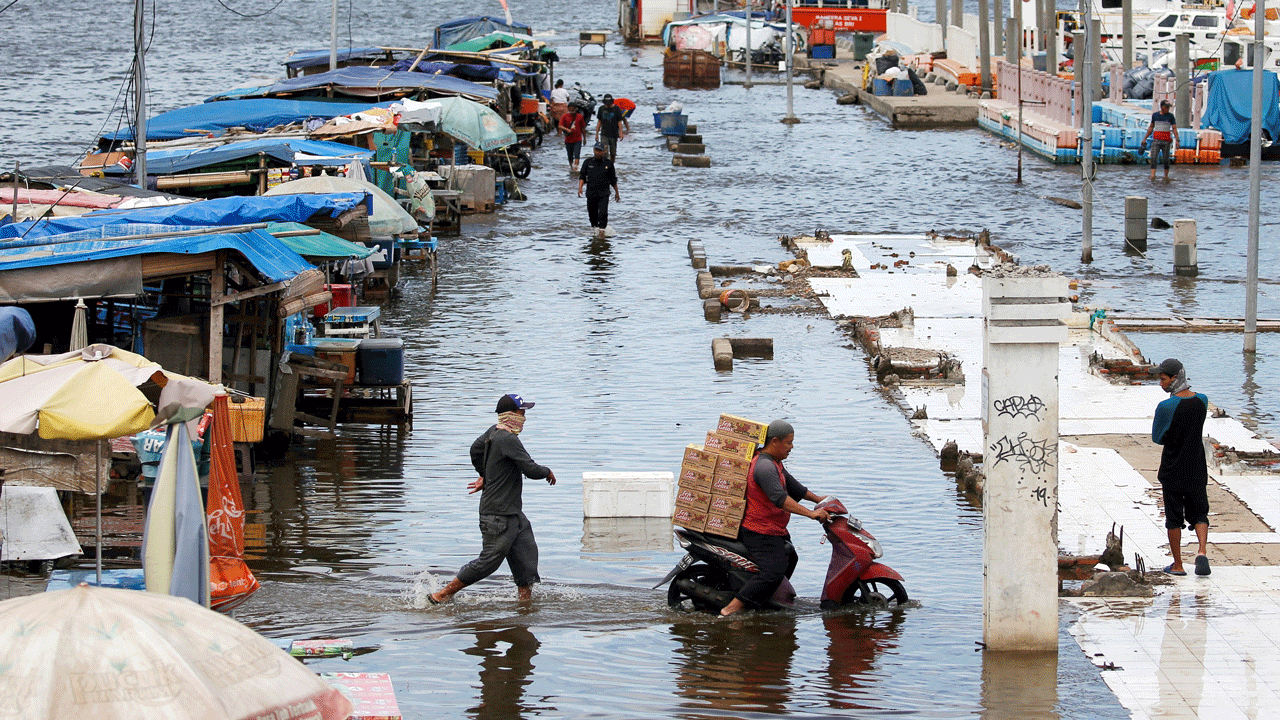
COP27: US bid to have China pay pollution costs puts climate cooperation at risk, observers warn
- Less-polluting countries battling the effects of climate change have urged the West to pay damages for exploiting their land and resources
- The US has softened its opposition to a ‘loss and damage’ fund, but insists that China be seen as a developed nation and pay its share
Rich nations must compensate poor ones for climate damage, China tells COP27
For the first time, countries devastated by increasingly severe and frequent climate change-driven natural disasters are urging the West to pay damages for exploiting their land and resources, both historically and in the present day.
Beijing, which asserts that it is a developing economy, has consistently pointed to the UN doctrine that industrialised countries, which generated most of the greenhouse gases now in the atmosphere, should take a bigger role in climate financing.
Washington has always rejected the setting up of such a “loss and damage” fund but recently toned down its resistance, while arguing that China should pay up as well.
With US-China climate change cooperation already suspended following US House Speaker Nancy Pelosi’s controversial visit to Taiwan, observers worry Washington’s latest assertion may burn one of the last remaining bridges between the rivals.
US news outlet Politico, in a widely circulated recent report, said Washington’s move would “set up China as the new climate bogeyman”, challenging the Chinese stand that the country be seen as a developing nation.
Analysts have questioned whether the US intention of defining its rival as “developed” was aimed at driving a wedge between China and the developing world, which takes a collective stand against industrialised countries on climate issues.
COP27: Kerry wants private sector to lead decarbonisation, keep 1.5-degree goal ‘alive’
According to Xu Qinduo, political analyst at China-based think tank the Pangoal Institution, the US is trying to “shirk responsibility” for climate change by bundling China into the league of rich or developed nations expected to pay into the fund.
“Washington may think they have the upper hand against Beijing, by shifting the attention onto China and complicating the dynamics in a fight between rich nations and the developing world, but Beijing would surely resist being ‘upgraded’ to a developed country, and a sense of international unity against climate change would be weakened,” Xu said.
The global conversation on Chinese-origin pollution was skewed, added Xu, who also teaches at Renmin University’s School of Journalism and Communication.
“It’s rather obvious that there’s a lack of emphasis on per capita emissions when it comes to China’s contribution to climate change,” he said.

China’s per capita carbon emission is less than half that of the US, even though it is No 1 in terms of overall emissions.
“China plays the role of ‘world’s factory’ in manufacturing goods, much of which are exported. There are questions that should be asked: should the producer take full responsibility for such emissions? What about consumers in the rich world in particular?”
Earlier this week, the small Caribbean island nation of Antigua and Barbuda, speaking on behalf of the Alliance of Small Island States (AOSIS), told the COP27 that China and India should contribute to the compensation fund.
It marked the first time the two Asian neighbours had been included in the list of major emitters – like the US, European Union and Britain – that AOSIS says should be held to account for their role in climate change.
COP27: Island nations want China and India to pay for climate damage
Prime Minister Philip Davies of the Bahamas, a low-lying Caribbean nation particularly vulnerable to sea-level rise and storm damage, told COP27 delegates to “get real” as he pleaded for an urgent financial lifeline.
“We are children of survivors of that man-made tragedy. We have a duty to fight for survival as they fought so desperately for theirs,” Davies said, referring to the transatlantic slave trade, when millions of African people were bought by European countries to be sent to the Caribbean against their will.
Much of the US and China’s talk of compensation is about political tokenism, according to Mohammadbagher Forough, research fellow at the German Institute of Global and Area Studies (GIGA), a Hamburg-based think tank.
“China is taking the side of the developing countries that demand this kind of compensation, which puts the US and the West in the spotlight. If the West resists this move, it will then be received negatively by the developing nations,” said Forough, who is a part of GIGA’s World Order Narratives of the Global South project.
Despite the furore over Pelosi’s trip to Taiwan, Forough said the US-China bridge was “not fully burnt”, with both sides recognising the need to cooperate for their own as well as collective survival.
However, there was greater optimism for efforts between China and Europe, he said, given an “absence of bitter geopolitical rhetoric”.
“Their cooperation path is easier as the EU is not as passionate about having a geopolitical fight with China as the US is. The EU and much of its population is interested in going green, so is China.”
“China’s emerging policy priorities include tackling pressing issues of debt relief, climate change and multilateral cooperation in developing countries … The [belt and road] underscores the key role of partnerships in support of a low-carbon transition through policy, infrastructure, trade and financial integration,” said Bian.
Such efforts should not be viewed through the lens of “compensation”, according to Lucie Xia Qian, China policy fellow at the institute.
“China has reiterated its commitment to carbon neutrality … at the ongoing COP27 negotiations; this year’s COP is about ‘implementation’, it is about those who made pledges at COP26, be it nations, regions, cities, or organisations, telling the world what progress they have made and the pathways forward,” Xia said.
Both China and the US understand that “any politicisation of climate change would be detrimental for both sides and humanity”, she added.


